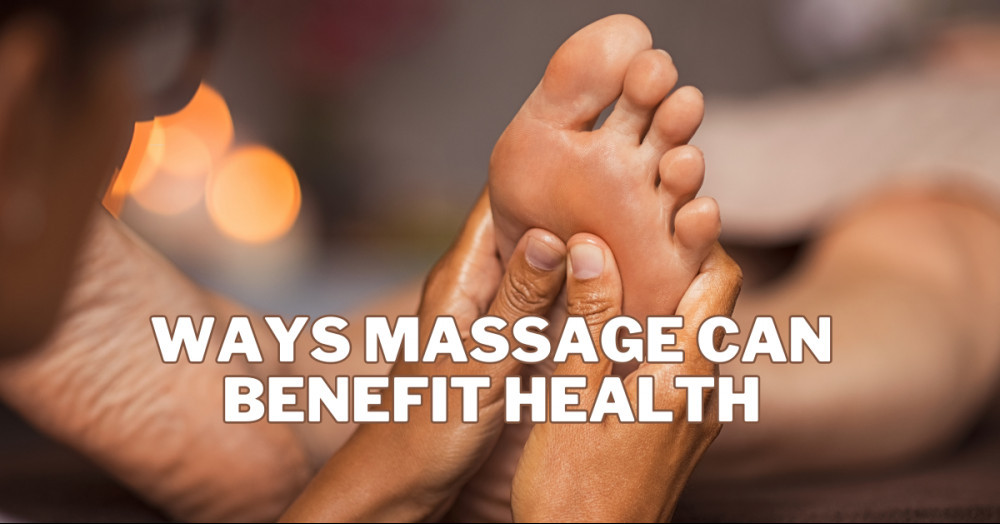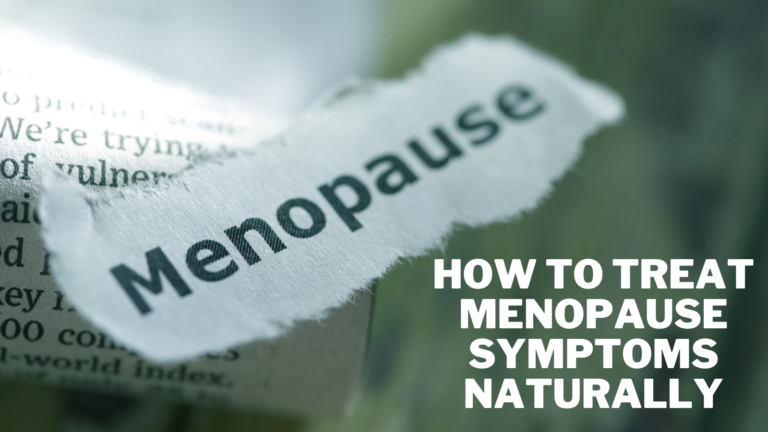Best Ways Massage Can Benefit Health
Best Ways Massage Can Benefit Health
Massage therapy has long been recognized as a powerful healing modality that offers many benefits for both the body and mind.
Beyond the luxurious indulgence often associated with it, massage therapy is a legitimate treatment that can significantly contribute to overall health and well-being.
Through the skilled manipulation of soft tissues, massage therapy promotes relaxation, reduces muscle tension, relieves stress, and supports various aspects of physical and mental health.
Whether you seek relief from specific ailments or simply desire to enhance your overall quality of life, understanding the profound impact of massage therapy on health is key.
This article highlights the importance of incorporating this therapeutic practice into your self-care routine by delving into how massage therapy promotes well-being.
So, let's explore the remarkable benefits of massage therapy and embark on a journey toward improved health and vitality through the power of therapeutic touch.
An Introduction To The Art Of Massage Therapy
Massage therapy is a therapeutic procedure that uses various manual techniques to manually manipulate soft tissues, such as muscles, tendons, ligaments, and joints.
Massage treatment is mostly used to promote relaxation, ease muscle tension, lessen discomfort, and improve general well-being.
Massage therapists, trained professionals with specialized knowledge of the human body, apply pressure, kneading, stroking, or tapping movements to the client's body using their hands, fingers, elbows, forearms, or even specialized tools.
These techniques can be tailored to address specific areas of tension or provide a full-body treatment.
Massage therapy offers a range of techniques and modalities to address different needs and goals.
Swedish Massage is the most common type of massage, involving long, gliding strokes, kneading, and circular movements to promote relaxation and improve circulation.
Deep Tissue Massage is a technique that involves applying firm pressure to target deeper layers of muscles and connective tissues to address chronic muscle tension, adhesions, and discomfort.
Sports Massage is Designed for athletes and active individuals; sports massage focuses on improving performance, preventing injuries, and promoting faster recovery by targeting specific muscle groups and addressing sport-related issues.
Trigger points are extremely sensitive regions of muscle fibres that can produce referred pain and discomfort. Trigger point therapy is a treatment that focuses on locating and releasing trigger points.
The fascia, the connective tissue surrounding muscles, is the focus of the myofascial release technique, which helps relieve tension and increase mobility.
Reflexology is a technique that includes applying pressure to certain spots on the hands, feet, or ears. These points correspond to various organs and bodily systems, and the practice is intended to promote overall relaxation and well-being.
There are several advantages to massage therapy. It can
- Ease pain
- Ease stiffness in the muscles
- Increase flexibility and range of motion
- Promote relaxation
- Lessen anxiety and stress
- Strengthen the immune system
- Enhance sleep quality
- Support overall physical and mental well-being
It's important to note that a qualified and licensed massage therapist should perform massage therapy.
Before receiving a massage, you should communicate your specific needs, concerns, and health conditions with the therapist to ensure a safe and effective treatment.
Benefits Of Massage For Health
In a fast-paced world filled with daily stresses and demands, finding effective ways to prioritize our health and well-being is paramount.
Amidst various wellness practices, one powerful modality stands out for its ability to nurture both the body and mind: massage therapy.
Beyond its reputation as a luxurious indulgence, massage therapy offers many benefits beyond relaxation.
Massage therapy can profoundly transform our health and enhance our overall quality of life by harnessing the power of touch and skillful manipulation of soft tissues.
Massage therapy offers a wide range of benefits for both physical and mental health. Here are some key benefits of massage therapy:
1. Relieves Muscle Tension And Pain
Muscle tension and pain are common complaints that can significantly impact our daily lives.
Massage therapy offers an effective solution for relieving these discomforts. Skilled massage therapists use various techniques to target specific muscle groups and areas of tension.
Through kneading, rolling, and deep pressure, they work to release tight knots and adhesions, allowing muscles to relax and promoting pain relief.
During a massage session, the manipulation of soft tissues stimulates blood flow to the affected area.
This increased circulation brings oxygen and nutrients to the muscles, aiding their recovery and promoting healing.
The release of endorphins, often referred to as the body's natural painkillers, further contributes to pain reduction.
These neurochemicals induce feelings of relaxation and well-being, helping to alleviate discomfort and enhance the overall massage experience.
2. Improves Circulation
Massage therapy has a profound impact on improving blood circulation, benefiting the entire body. The pressure and kneading movements during a massage session stimulate the blood vessels and tissues, enhancing blood flow.
As a result, more oxygen and nutrients are delivered to the cells, promoting their optimal function and supporting the body's natural healing processes.
Increased circulation also helps the muscles and tissues remove metabolic wastes like lactic acid and carbon dioxide. This removal of garbage helps reduce muscle soreness, fatigue, and inflammation.
Additionally, enhanced circulation can benefit organs and systems throughout the body, including the cardiovascular, immune, and digestive systems.
By improving circulation, massage therapy supports individuals' overall health and well-being. It promotes healing and contributes to increased energy levels, improved organ function, and enhanced cellular health.
The body's ability to efficiently deliver oxygen and nutrients while eliminating waste is vital for maintaining optimal health, and massage therapy is a valuable tool in achieving this balance.
3. Enhances Range Of Motion And Flexibility
Massage therapy significantly improves the body's range of motion and flexibility. Massage therapists target muscles, tendons, and ligaments through various techniques to release tension and increase suppleness.
Massage therapy dissolves adhesions and scar tissue, which can limit movement by kneading, stretching, and providing pressure.
A common obstacle to obtaining a full range of motion is muscle tension.
Massage therapy reduces muscle tension by increasing blood flow to the muscles, promoting relaxation, and improving muscle elasticity. This, in turn, allows for greater flexibility and ease of movement.
Massage therapy also benefits joint mobility. Massage helps to relieve stiffness, improve lubrication, and increase synovial fluid production by manipulating the soft tissues around joints.
For people with illnesses like arthritis or those who are healing from joint injuries, this can be extremely helpful. Regular massage therapy sessions can lead to noticeable flexibility and range of motion improvements over time.
Whether you're an athlete looking to enhance performance, someone with limited mobility seeking increased flexibility, or recovering from an injury, massage therapy promotes greater freedom of movement and overall physical well-being.
4. Boosts Immune Function
Massage therapy can positively impact immune function, bolstering the body's natural defence mechanisms.
Research has shown that regular massage therapy stimulates the lymphatic system, a crucial part of the immune system responsible for removing toxins, waste products, and pathogens from the body.
By increasing lymphatic flow through gentle, rhythmic movements, massage therapy supports the efficient elimination of harmful substances and promotes overall immune system health.
Natural killer cells (NK cells), a subset of white blood cells essential for detecting and eliminating viruses, bacteria, and other dangerous cells, are also affected by massage therapy on their activity.
Studies have demonstrated that regular massage sessions can increase the activity of NK cells, enhancing their ability to protect the body against invading pathogens and potentially reducing the risk of illness.
Regular massage therapy can positively impact immune function by supporting lymphatic flow, enhancing NK cell activity, and reducing stress.
You may boost your immune system by including massage treatment in your wellness regimen, improving your body's capacity to fight illnesses and advance general health and well-being.
5. Aids In Rehabilitation And Injury Recovery
Massage therapy is valuable in rehabilitation and injury recovery. Its various techniques can help address common challenges encountered during the healing journey.
Massage therapists can target injured areas and surrounding tissues by applying specific pressures, kneading, and stretching to promote recovery.
Massage therapy helps reduce pain and discomfort by releasing endorphins, the body's natural painkillers.
It also aids in reducing inflammation by increasing circulation to the injured tissues, facilitating the removal of metabolic waste products and promoting the delivery of oxygen and nutrients necessary for healing.
The improved blood flow helps accelerate the healing process by supplying the injured area with essential resources.
Additionally, massage therapy can help break up scar tissue and adhesions that may form during the healing process.
This can prevent the formation of dense, fibrous tissue that may limit the range of motion and impair functionality.
Furthermore, massage therapy offers psychological benefits by reducing stress and anxiety commonly associated with injuries.
By promoting relaxation and a sense of well-being, it can support mental and emotional well-being during the rehabilitation process.
6. Decreases Blood Pressure
Regular massage therapy has demonstrated the potential to lower blood pressure and contribute to improved cardiovascular health.
The relaxation response induced by massage promotes a decrease in the production of stress hormones, such as cortisol, while increasing the release of endorphins and other feel-good neurotransmitters.
This combination of physiological changes calms the body, reducing anxiety and promoting overall relaxation. As stress and anxiety levels decrease, blood vessels dilate, allowing blood to flow more freely and easing the workload on the heart.
This results in lower blood pressure readings. Additionally, it has been discovered that massage therapy increases parasympathetic activity, which is responsible for the body's rest response, while decreasing the movement of the sympathetic nervous system, which is in charge of the “fight or flight” reaction.
By encouraging relaxation, massage therapy contributes to maintaining healthy blood pressure levels and supports cardiovascular well-being.
7. Enhances Athletic Performance
Massage therapy is vital in improving athletic performance by supporting athletes in various aspects of their training and competition.
Sports massage techniques are specifically designed to meet the unique needs of athletes and can be tailored to target specific muscle groups and areas of concern.
By incorporating regular sports massage into their training regimen, athletes can experience various benefits. Sports massage helps reduce muscle soreness and fatigue by promoting the removal of metabolic waste products and increasing blood circulation to the muscles.
It aids in preventing injuries by identifying and addressing areas of muscle tension or imbalance before they develop into more significant issues.
Moreover, sports massage can improve flexibility and range of motion, allowing athletes to move more freely and efficiently.
By optimizing muscle function and promoting faster recovery, massage therapy contributes to improved athletic performance, enhanced endurance, and a reduced risk of overuse injuries, enabling athletes to perform at their best.
8. Alleviates Symptoms Of Anxiety And Depression
Massage therapy offers a soothing and nurturing experience that can positively impact mental health.
Research has shown that regular massage sessions can help alleviate symptoms of anxiety and depression.
The relaxation response brought on by massage therapy encourages a reduction in the production of stress hormones like cortisol while increasing the release of neurotransmitters like dopamine and serotonin, which are linked to better mood and well-being.
This combination of physiological changes promotes relaxation and reduces anxiety levels.
Massage therapy also provides a safe and comforting space for individuals to relax, release tension, and quiet their minds.
Through the power of human touch and the therapeutic environment created during a massage session, individuals can experience a temporary respite from their worries and a sense of emotional support.
By promoting relaxation, reducing stress hormones, and enhancing the release of mood-enhancing neurotransmitters, massage therapy serves as a valuable complementary approach to managing symptoms of anxiety and depression, promoting overall mental wellness.
9. Supports Digestive Health
Massage therapy can relieve and support digestive health concerns by targeting the abdomen.
Abdominal massage techniques involve gentle and specific manipulations of the abdominal area, including the stomach, intestines, and surrounding organs.
By applying pressure and kneading motions, massage therapy stimulates peristalsis, the wave-like movement of the muscles in the gastrointestinal tract responsible for propelling food and waste through the digestive system.
This stimulation can help alleviate symptoms such as bloating, gas, and constipation by encouraging proper movement and elimination.
Additionally, abdominal massage can help reduce tension and adhesions in the abdominal muscles, which can contribute to digestive discomfort.
Massage therapy supports overall gastrointestinal function and can relieve conditions such as irritable bowel syndrome (IBS) by improving blood and lymphatic circulation to the abdominal area.
It is important to note that abdominal massage should be performed by a skilled therapist trained in this specific technique to ensure safety and effectiveness.
10. Alleviates Symptoms Of PMS And Menopause
Massage therapy can offer welcome relief from the symptoms commonly experienced during premenstrual syndrome (PMS) and menopause.
Massage therapy's soothing touch and relaxation can help reduce physical discomfort and emotional distress associated with these transitional phases in a woman's life.
Massage therapy helps alleviate pain, such as menstrual cramps, by promoting blood flow and releasing endorphins, which act as natural pain relievers.
It also aids in reducing bloating and fluid retention by stimulating lymphatic drainage and improving circulation.
Additionally, massage therapy has been shown to decrease mood swings and anxiety that often accompany PMS and menopause by promoting relaxation and reducing stress hormones.
By creating a nurturing and calming environment, massage therapy can offer much-needed support during these hormonal fluctuations, helping women find relief and enhancing their overall well-being.
11. Relieves Pregnancy Discomfort
A prenatal massage is a specialized therapy designed to cater to unique needs and changes during pregnancy.
It provides relief from the various discomforts experienced by pregnant women. Pregnant massage helps alleviate common issues like back pain, sciatica, and muscle tension by targeting the lower back, hips, and legs.
A trained massage therapist's gentle and nurturing touch promotes relaxation, reducing stress and anxiety. This relaxation response triggers the release of endorphins, enhancing the overall sense of well-being.
Prenatal massage also aids in reducing swelling and edema by stimulating lymphatic circulation and promoting the removal of excess fluid.
Improved circulation can also support the delivery of nutrients and oxygen to the mother and the growing baby.
Additionally, prenatal massage can improve sleep quality, relieve muscle cramps, and enhance joint flexibility, providing expectant mothers with much-needed relief and contributing to a more comfortable and enjoyable pregnancy journey.
12. Promotes Self-Care And Stress Management
Regular massage therapy sessions are powerful for promoting self-care and effective stress management.
Carving out dedicated time for relaxation and rejuvenation in today's fast-paced world is essential.
Massage therapy offers a sanctuary where individuals can disconnect from their daily stresses and focus solely on their well-being.
It provides a nurturing environment that allows them to unwind, recharge, and restore their body and mind balance.
The therapeutic touch of a skilled massage therapist stimulates the relaxation response, reducing the production of stress hormones and inducing a state of deep relaxation.
This helps release tension, alleviate anxiety, and promote a sense of calm and well-being.
Regular massage therapy sessions allow individuals to prioritize self-care, establishing a healthy routine that nurtures their physical and mental health.
People can actively manage stress, improve resilience, and build a higher feeling of general well-being by prioritizing self-care and including massage treatment in their wellness routine.
Conclusion
In conclusion, massage therapy offers many benefits for both physical and mental health. Through the power of touch and skilled manipulation of soft tissues, massage therapy provides a holistic approach to healing and well-being.
Whether for preventive care, injury recovery, or to promote overall wellness, massage therapy is a valuable tool to nurture and support our health.
By embracing the therapeutic benefits of massage therapy, we can enhance our quality of life and experience a profound sense of physical, mental, and emotional well-being.
I trust you enjoyed this article on the Best Ways Massage Can Benefit Health. Please stay tuned for more blog posts shortly. Take care!
JeannetteZ
>>>Please click here to read my all-inclusive article about A Comprehensive Guide To Healing Naturally<<<
>>>Are you interested in Natural Healing And Stress Relief through Herbs? Please click here for my #1 Recommendation<<<
Your Opinion Is Important To Me
Thoughts? Ideas? Questions? I would love to hear from you. Please leave your questions, experience, and remarks about the Best Ways Massage Can Benefit Health article in the comments below. You can also reach me by email at Jeannette@Close-To-Nature.org.
Disclosure
This post may contain affiliate links. As an Amazon Associate and other affiliate programs, I earn from qualifying purchases at no extra cost to you. Please read my full affiliate disclosure.
You might also enjoy these blog posts:
Best Ways To Create A Bird-Friendly Garden
Common Backyard Birds In The USA
Interesting Yellow-Bellied Sapsucker Facts
Interesting American Redstart Facts






















